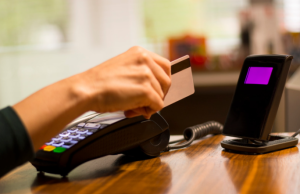The world of digital payment is constantly shifting. Open banking platforms provide new ways of storing and exchanging cash, and the limit for contactless payment is being pushed ever higher. This propensity to change is most visible in the world of charge cards, where customers have an unprecedented range of options.
If you’re going to be paying for goods and services with a charge card, then you’ll have a choice of two broad categories: open and closed loop. Let’s take a look at them, and see what the advantages of each might be.
What is Open-Loop?

An open-loop charge card can be used anywhere, to make purchases from any vendor which accepts the card in question. You can usually tell where a card is accepted with the help of a list of logos. Visa, Mastercard, and American Express are all open-loop cards.
Open-loop payment methods make things much more flexible for the customer and speed up the payment process. When you know that a given charge card can be used anywhere, you tend to spend less time searching for the appropriate one.
There are also economies of scale to consider. If additional branches need to be opened up, or additional bus services offered, then it tends to be much cheaper to produce the equipment to take payment from open-loop cards, since they’re used by everyone.
Since just about everyone already owns an open-loop card of some sort, accepting them means less friction for the customer. This makes them bound to make a buy.
What is Closed-Loop?

A closed-loop card, by contrast, is one that can be accepted only at a particular retailer. You might think of the Oyster card that you use to pay for public transport around London or fuel cards like Allstar and Key Fuels.
The main advantage of a closed-loop card is that it limits the spending of the individual. Where these cards are being issued to employees, this can be a major boon, as it helps to clearly separate personal and small business expenditure. When a truck driver pulls up to refuel, the company can pay for the diesel, and he can pay for all of the snacks he might pick up in the shop.
Closed-loop charge cards can also help to incentivize loyalty. Retailers can more effectively keep track of where an individual is spending their money, and issue them with rewards along the way. If you know that you’ll make money by shopping at a particular store, then you’ll be more likely to reach for that special charge card, instead.





































